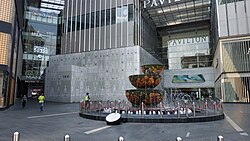| Case Number | Date of Death | Nationality | Gender | Age | Hospitalised Location | Patient Data | Source | Additional Source |
|---|
| 1 | 290 | 21 March 2020 |  Malaysia Malaysia | Male | 57 |  Kuala Lumpur Hospital Kuala Lumpur Hospital | The deceased was identified as Idris Atan, a Malaysian Islamic Party (PAS) veteran. He travelled to Vietnam and had direct contact with a Tablighi Jamaat in Masjid Sri Petaling participant. Developed symptoms on 7 March. He died at 3:22 pm, 21 March. He was a veteran PAS member and founded PAS branch in Batu Caves, Selangor on 1988. | [2] |
| 2 | 1334 | 24 March 2020 |  Malaysia Malaysia | Male | 75 |  Kuala Lumpur Hospital Kuala Lumpur Hospital | Identified as Lt Col Rahmad Said, who is a military veteran. First hospitalised in Tuanku Mizan Military Hospital on 16 March before being transferred to Kuala Lumpur Hospital on 18 March. He died at 7:40 pm, 24 March. |
| 3 | 1056 | 26 March 2020 |  Malaysia Malaysia | Male | 35 |  Kuala Lumpur Hospital Kuala Lumpur Hospital | Identified as Mohd Fairos Saberon, a police inspector. Saberon had travel history to Bandung, Indonesia on early March. Saberon died at 9:30 pm, 26 March. |
| 4 | 787 | 29 March 2020 |  Malaysia Malaysia | Male | 77 |  Kuala Lumpur Hospital Kuala Lumpur Hospital | Had hypertension. Died at 10:40 am, 29 March. |
| 5 | 2626 | 27 March 2020 |  Malaysia Malaysia | Male | 69 | — | Had diabetes and hypertension, and travelled to Saudi Arabia before. He died at his home on 27 March and the body was brought to Kuala Lumpur Hospital. He was diagnosed during the post-mortem. |
| 6 | 193 | 31 March 2020 |  Malaysia Malaysia | Female | 80 |  Kuala Lumpur Hospital Kuala Lumpur Hospital | Had diabetes, hypertension and heart disease. Died at 4:30 am, 31 March after 18 days of hospitalisation. She is the close contact of Case 115. |
| 7 | 1053 | 31 March 2020 |  Malaysia Malaysia | Male | 62 |  Kuala Lumpur Hospital Kuala Lumpur Hospital | Had diabetes and hypertension and was a close contact of Case 486. Died at 10:46 pm, 31 March. |
| 8 | 2149 | 28 March 2020 |  Malaysia Malaysia | Female | 85 |  National Heart Institute National Heart Institute | Had heart disease. Died at 12:10 am, 28 March. |
| 9 | 3484 | 4 April 2020 |  Malaysia Malaysia | Male | 68 |  Kuala Lumpur Hospital Kuala Lumpur Hospital | Had diabetes. Died at 3:40 pm, 4 April. |
| 10 | 1906 | 8 April 2020 |  Pakistan Pakistan | Male | 69 |  Kuala Lumpur Hospital Kuala Lumpur Hospital | A participant of Tablighi Jamaat event in Masjid Sri Petaling. He died at 9:30 am, 8 April. He lived in Menara City One condominium which was placed under Enhanced Movement Control Order due to spike of cases. He was the 2nd fatality of Kuala Lumpur related to Tabligh cluster. |
| 11 | 4229 | 10 April 2020 |  Malaysia Malaysia | Male | 77 |  Kuala Lumpur Hospital Kuala Lumpur Hospital | Had diabetes. Died at 4 am, 10 April. |
| 12 | 4818 | 12 April 2020 |  Malaysia Malaysia | Male | 63 |  Kuala Lumpur Hospital Kuala Lumpur Hospital | Had heart and kidney disease. Died at 11:36 pm, 12 April. |
| 13 | 4711 | 15 April 2020 |  Malaysia Malaysia | Male | 66 |  Kuala Lumpur Hospital Kuala Lumpur Hospital | Had hypertension and heart disease. Died at 12:55 pm, 15 April. He was a close contact of Case 5332 (15th death). |
| 14 | 2657 | 12 April 2020 |  Malaysia Malaysia | Male | 60 |  Kuala Lumpur Hospital Kuala Lumpur Hospital | Had diabetes and hypertension. Died at 3:20 pm, 12 April. |
| 15 | 5332 | 21 April 2020 |  Malaysia Malaysia | Male | 92 |  Kuala Lumpur Hospital Kuala Lumpur Hospital | Had diabetes, hypertension and dementia. He had close contact with Case 4711 (13th death). Died at 1:30 am, 21 April. |
| 16 | 2806 | 24 April 2020 |  Malaysia Malaysia | Female | 62 |  Kuala Lumpur Hospital Kuala Lumpur Hospital | She was the mother of Case 1346. Had hypertension. Died at 5:43 pm, 24 April. |
| 17 | 5441 | 30 April 2020 |  Malaysia Malaysia | Male | 66 |  Kuala Lumpur Hospital Kuala Lumpur Hospital | Had close contact with Case 4818 (12th death) and had cancer. Died at 4 pm, 30 April. |
| 18 | 7468 | 12 June 2020 |  India India | Male | 67 |  Canselor Tuanku Muhriz UKM Hospital Canselor Tuanku Muhriz UKM Hospital | The deceased was identified as Zeawdeen Kadar Masdar, an Indian national from Paramakudi, Tamil Nadu who was detained at the Bukit Jalil Immigration Detention Depot. He had diabetes, hypertension, heart and kidney disease. Masdar was found unconscious on 12 June and was rushed to UKM Hospital, and died. As of 22 June, the post-mortem report is still underway. | [3] |
